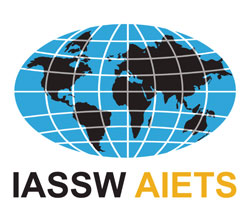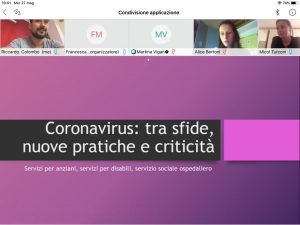Reorganising social work field placement: The experience of University Milano Bicocca
Francesca Maci
Social work field placement Lecturer, Milano Bicocca University
The coronavirus lockdown had a strong impact on social work education in universities. Critically, it called for a rethink of the field placement, an integral part of any social work program as it teaches students how to think and act like social workers.
I consider the third year of a social work course at Milano Bicocca University (Italy). It is specifically focused on the direct experimentation of the social work profession, structured around an innovative proposal composed of four parts:
- Remote field placement of 50 hours (minimum): As social services were closed during the pandemic emergency, they provided their activities and intervention online. Several social worker supervisors confirmed their availability to continue the field placement remotely, by accompanying the student in the discovery and experience of the positive and critical aspects of remote helping relationships.
- Panel of webinar held by field placement supervisors: Supervisors held, on a voluntary basis, three hour long webinars in which each of them gave a testimony of her/his activity as social worker in a specific area of intervention and organization. They also provided students with different insights to elaborate later on, individually or in a group. This activity enabled students to have a whole view of social services organization and of the profession’s roles and functions. Every student had to attend 10 webinars.
- Internal remote field placement of 30 hours (provided by Milano Bicocca): An experienced social worker held an intensive and practical workshop twice weekly for those students that didn’t have the opportunity to work remotely due to the unavailability of health and residential care services. The workshop was based on a virtual social work field experience, starting from a child protection service and further addressing local authority social services, the children’s court and social health care services (addiction, mental health).
- Deepened understanding of the impact of coronavirus on the social services system and social work profession (30 hours): Every student initially elaborated a paper in order to collect some information, data and experiences and to articulate their personal thoughts about how coronavirus has impacted on the social services system and social work profession. Students subsequently were assembled in groups with the aim of further exploring and deepening this topic according to different areas of social interventions. A plenary session will be organized to share a presentation from each group and promote discussion and discursive confrontation about how social workers are coping with social and health emergency due to corona virus.
This innovative reorganization brought several positive aspects. Students developed significant skills in coping with emergency situations and gaining specific expertise in managing health pandemics. Moreover, they learned how to manage the helping relationship and the social worker’s role, functions and activities during remote interventions. On the downside, students did not observe the social work supervisors’ daily working routines and they did not engage directly in helping relationships.








